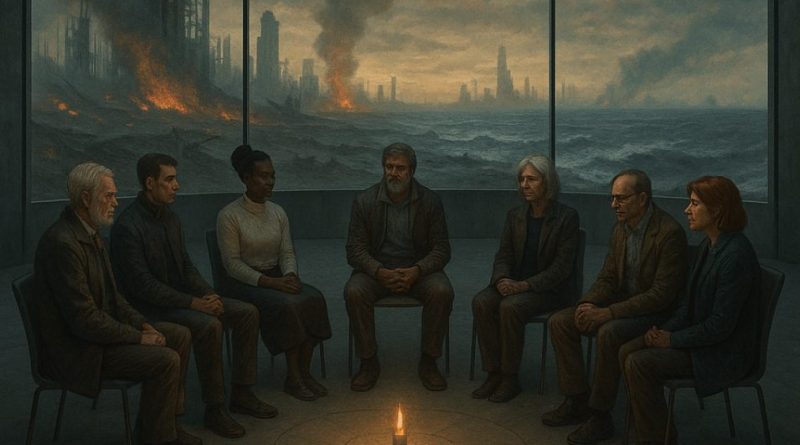The Calibration
In the year 2046, a group of behavioral scientists, AI ethicists, and neuroscientists developed what they called the Empathy Index. It wasn’t just a personality test or a social experiment—it was a breakthrough in neurosocial biometrics. By analyzing patterns in neuroelectric responses, oxytocin regulation, and a person’s behavioral data stream (collected passively through integrated devices), the index could determine, with alarming accuracy, a human’s predisposition toward kindness, generosity, and altruistic intent.
The test was subtle. It ran quietly in the background of medical scans, public health surveys, and augmented reality filters. Within a few years, the entirety of Earth’s population had unknowingly been indexed.
The results shocked the creators.
Only 15.2% of humanity scored above the neutral midpoint on the Empathy Index—marked as “more kind and generous than not.”
That number might once have seemed comforting. But viewed across the accelerating descent of climate chaos, economic instability, and social fragmentation, it felt like a final warning. The kind were outnumbered nearly 6 to 1.
Those in the 15.2%—quietly notified and brought into discreet contact—began gathering annually, in person where possible, virtually where not. They called themselves The Continuance. At first, they talked of action: education campaigns, political movements, genetic reinforcement. They tried to model better systems, to scale kindness like a vaccine.
But the world had grown allergic to empathy. The loudest voices were angry, transactional, optimized for virality and dominance. The climate grew crueler, the rich more insulated, the poor more desperate.
By 2058, the Continuance had shrunk. Fewer than 10% now met the threshold. Each year, they scanned for new entrants—children, migrants, outliers—but the trend was grim. Kindness, they realized, was not self-sustaining in a system that punished it.
By 2067, the number dropped to 4.6%. The Continuance could now meet in a single auditorium. They all knew one another. Greyed, weary, some clinging to hope, some quietly broken.
It was during that year’s assembly—held deep beneath Iceland’s collapsing northern ice shelf—that a question was asked aloud by one of the youngest among them:
“Is it better to continue, knowing what’s coming? Knowing we will dwindle to nothing? Or… do we end the experiment? End us, and hope that something better might grow from the silence?”
No one laughed. Not even nervously.
For two days, they debated. Not in anger. Not in fear. With gravity, and with sorrow. And when the vote was cast, the results were unambiguous.
It was time to let go. To end humanity’s arc, not with rage, not with conquest—but with consent.
No one knows exactly how they did it. There are only fragments: sudden silences from once-bustling cities, a global network gone dark, skies unscarred by contrails. There were no bombs, no plagues. Just… stillness. As if the Earth herself had exhaled.
And then, for the first time in hundreds of thousands of years, the planet was quiet.
54.2 million years later
On a planet reshaped by time and healing, something stirs. In the dense forests of what was once the Saharan Basin, a species of tool-using arboreal mammals gathers at the edge of a reflective pool. Their eyes are large, tuned not just to movement—but to expression.
One offers food to another, unprompted.
There is no hierarchy. No struggle.
The moment is brief, but charged with meaning.
And somewhere in the old crust of the world, where cold data once pulsed through copper veins, a dormant node of the ancient Empathy Index flickers once—registering its first reading in eons.
98.6%.

